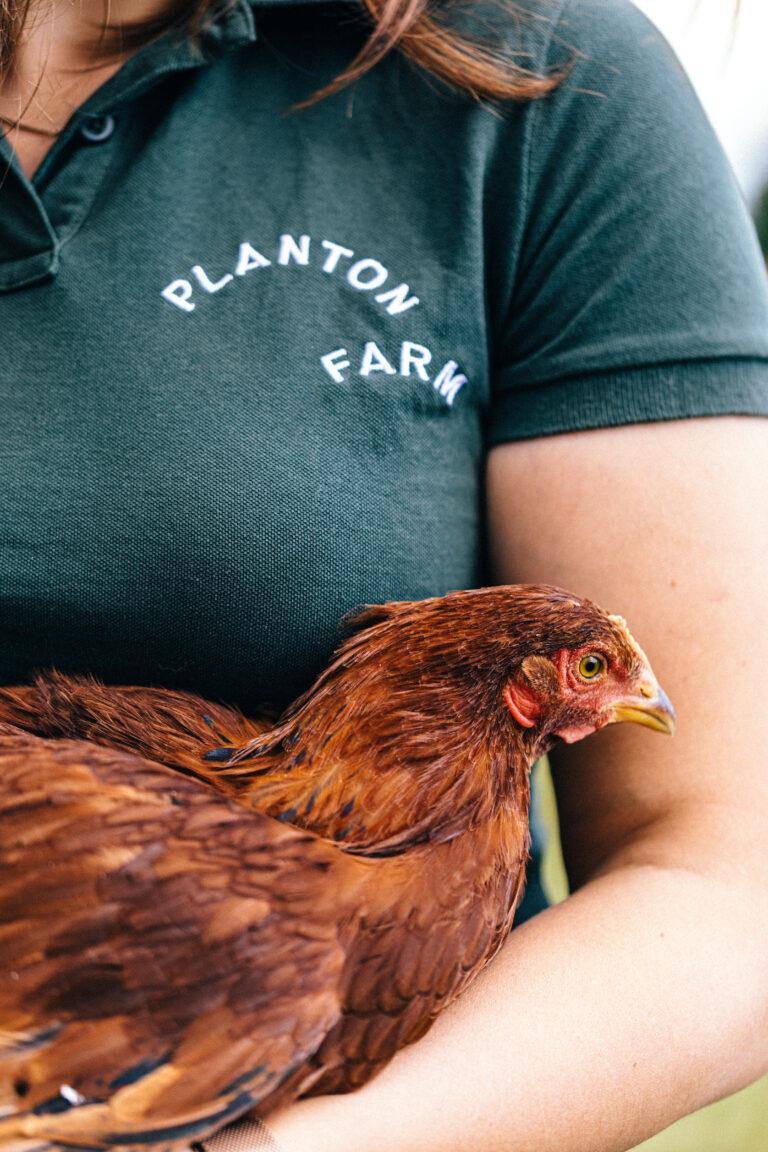Planton Farm, co-founded by researcher Dr Annie Rayner and farmer Clare Hill, is embarking on a pioneering project to explore the practicalities and sustainability of dual-purpose, pasture-raised poultry as an integrated enterprise for UK farms.
The project team has secured initial funding and are seeking project partners to fund, scale and bring further expertise to the project.
The initiative has been awarded funding as part of Defra’s Farming Innovation Programme, delivered with Innovate UK. The project is a collaboration with Researcher, Dr Elizabeth Rowe from the University of Reading and Mike Theodorou of Biosource Consulting, who also holds an Emeritus Chair at Harper Adams University and serves as innovation manager for the project.
Sustainability
The average Brit consumes 25 kg of chicken meat and 200 eggs a year. However, the chicken and egg industry faces significant sustainability challenges, including environmental impacts from soy-based feeds, the proper management of manure, and health & welfare concerns such as pododermatitis.
At Planton Farm in Shropshire, Rayner and Hill have already introduced pasture-based laying hens and summer pasture broilers. This project aims to further investigate the viability of dual-purpose breeds—birds that can serve both as egg layers and meat producers. By bringing value to male layer chicks, which are typically culled, dual-purpose breeds offer a more ethical and sustainable approach to poultry farming.
The project will combine desk-based research with small-scale trials to explore key components of pasture poultry systems including feed systems; housing and brooding designs; and breed availability, identifying suitable dual-purpose breeds for UK farms.
The chicks have just been placed, with males processed for meat in the summer and hens beginning egg production around the same time. The research will monitor productivity, cost of production, and egg and meat yields, while also assessing the impact on pasture health and biodiversity.
Regenerative Poultry Farming
“Our goal is to create a practical, scalable model for regenerative dual-purpose chicken farming that integrates seamlessly into existing UK farm systems,” said Rayner, co-founder of Planton Farm. “By addressing both environmental and ethical issues in poultry production, we hope to offer a more sustainable solution that benefits farmers, consumers, and the planet.”
Rayner said the project would aim to look at how to make poultry work as a commercially viable enterprise without “externalising the costs” of production.
The industry had, she said, gone down the route of specialisation, but “by doing so we’ve taken ourselves to a knife edge because we’ve focussed purely on productivity”.
The costs of disease and to the environment of soya production, were not properly considered, she said. So we need to start taking into account the costs,” she said.
Dual purpose birds were used widely in Africa and Asia, said Rayner, and she had obtained the first cohort of chicks from a mainstream breeding company in France. During the course of the project several different breeds would be trialled, she said.
She hoped the project would provide a blueprint for what incorporating poultry into farming systems could look like. “The aim is to scale it beyond our farm,” she said. The idea was not abut trying to replace large scale commercial poultry, but more about showing how it was possible to incorporate poultry into other farms as an additional enterprise.
The Defra funding will finish in March 2026, but Rayner said she hoped very much to find further funding and run multiple trials in the years ahead. Diet is one of the areas being looked at, with alternative to soya including beans, peas, grains unsuitable for the human food chain and insect protein being looked at.
Building on the initial funding from DEFRA, Planton Farm is launching a funding consortium of food businesses to expand the scale and impact of the project.
This consortium and its complementary funding will bring valuable expertise, knowledge and reach to the project allowing for deeper exploration of key topics, and faster progress in answering the fundamental question: What does truly regenerative chicken farming look like in the UK?
“We’re excited to grow this project beyond its initial scope,” said Rayner. “The consortium will not only accelerate our research but also create a dynamic community of expert stakeholders committed to pioneering sustainable and regenerative poultry farming in the UK and beyond.”
“Our goal is to create a practical, scalable model for regenerative dual-purpose chicken farming that integrates seamlessly into existing UK farm systems,” she added. “By addressing both environmental and ethical issues in poultry production, we hope to offer a more sustainable solution that benefits farmers, consumers, and the planet.”


